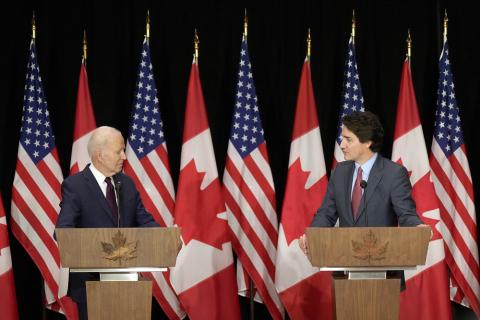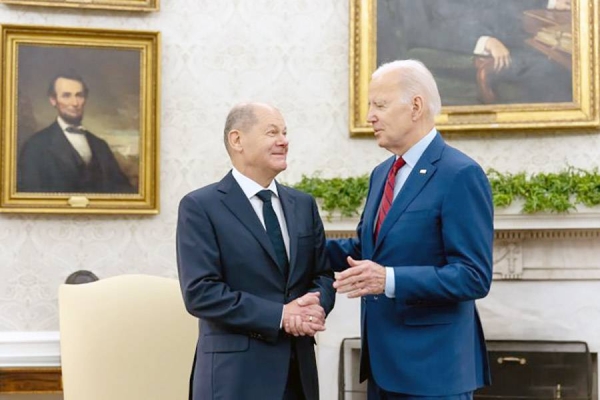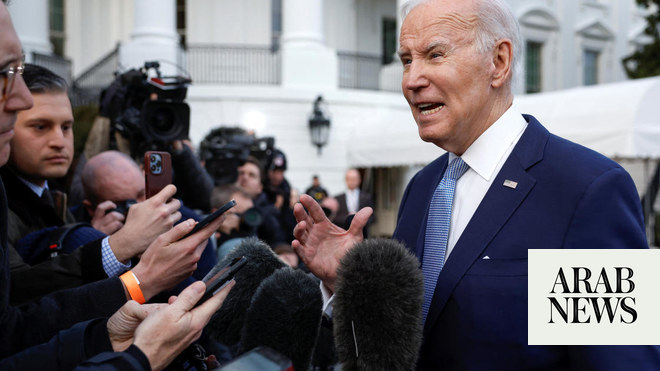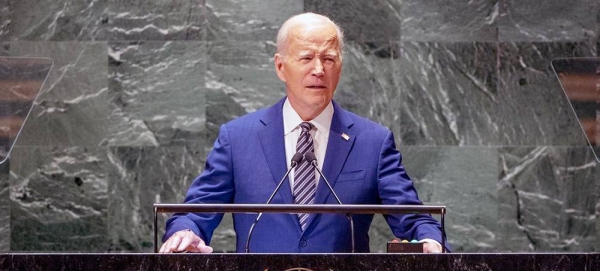
US President Joe Biden and Canadian Prime Minister Justin Trudeau presented a united front on Friday as Biden visited the Canadian capital days after the leaders of China and Russia held a Moscow summit.
Images of Biden and Trudeau standing side by side in Ottawa announcing agreements including on semiconductors and migration represented a counter point to the scene in Moscow days ago.
There, Chinese President Xi Jinping and Russian President Vladimir Putin professed friendship and pledged closer ties as Russia struggles to make gains in what the West considers an unjust invasion of Ukraine.
At a joint news conference with Trudeau, Biden questioned the level of China and Russia's cooperation, noting that China has not provided weapons to Russia for use against Ukraine.
Biden said the US had expanded alliances including with NATO, the G7, South Korea and the Quad nations of the US, Australia, India and Japan.
"We have significantly expanded our alliances," said Biden. "Tell me how in fact you see a circumstance where China has made a significant commitment to Russia. What commitment can they make?"
Addressing Canada's parliament, Biden said that, as NATO members, the two countries would "defend every inch of NATO territory."
Trudeau told the news conference that Ukraine was a top issue.
"Today we reaffirmed our steadfast support for the Ukrainian people as they defend themselves against Putin's brutal and barbaric invasion," Trudeau said.
Semiconductors, EVs
At the news conference, Trudeau announced the two leaders had signed an agreement with IBM to develop semiconductor capacity and ease reliance on foreign makers after supply-chain problems bedeviled both countries.
The US Defense Production Act will give $250 million, Biden said.
Canada has an abundance of the critical minerals used to produce batteries and electric vehicles (EVs), but China currently dominates the global market.
Trudeau is preparing a budget to be published on Tuesday aimed at scaling up critical mineral and clean tech production.
"With growing competition, including from an increasingly assertive China, there's no doubt why it matters that we turn to each other now to build up a North American market on everything from semiconductors to solar panel batteries," Trudeau said.
Biden announced $50 million to incentivize US and Canadian companies to invest in packaging semiconductors and said Canada would provide up to C$250 million ($182 million) for semiconductor projects in the near term, according to a joint statement.
The two countries also agreed on an energy transformation task force focusing on clean power and vowed to cooperate on a "North American critical minerals supply chain," the statement said.
Michael Spavor and Michael Kovrig, two Canadian men that China had detained for more than 1,000 days until 2021, attended the speeches. Both leaders addressed the men, who had been at the center of a dispute between Washington and Beijing.
"They're not diplomatic leverage. They're human beings with lives and families that must be respected," Biden said.
Ahead of their meetings, the two leaders had already struck a deal aimed at stopping asylum seekers from traversing the shared US-Canada land border via unofficial crossings.
"The United States and Canada will work together to discourage unlawful border crossings and fully implement the updated Safe Third Country Agreement," Biden said of the deal. Canada agreed to take in 1,500 migrants from countries in the "Western Hemisphere" as part of the deal.












